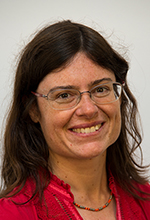The Language and Literacy Lab
We study the acquisition and use of spoken and written language, across the lifespan.
How do children learn to spell tricky words in English? Does adding a smiley emoji to a text message make your recipient think you’re friendly… or unprofessional? How do adults decide when to use commas? Why do Australians shorten so many words – footy, servo, ref, Shazza? These are just some of the questions considered by the language and literacy lab. We’re interested in how both children and adults use language, in speech, in conventional reading/writing, and also in digital communication.
Expertise
- The language of digital communication
- Spelling acquisition and mastery
- Reading acquisition and mastery
- Diminutives in spoken Australian English
- Language development
Projects
The language of digital communication
How children and adults use written language in their digital messages, links with literacy/grammar, changes across time (10-year study), the influence of emojis on message interpretation
Conventional spelling and reading skills
The role of morphology in spelling/reading, the acquisition and use of punctuation, factors affecting children’s and adults’ spelling choices
Diminutives in spoken Australian English:
The what and why of people’s changes to words that make them sound “more Australian” (arvo, uggies, ump)
Group Leader(s)
Affiliation
School of Psychological Sciences
Contact
Email: nenagh.kemp@utas.edu.au
Group members
Hanna Davie
Abbie Grace
Katie Ling
Lucy Gillespie
Jess Graham
Jessica Evans
Nicole Marsh
Additional Information
We welcome applications from future students interested in joining this research group.
Many of these topics are investigated with national and international collaborators, including Rebecca Treiman (Washington University in St Louis), Clare Wood (Nottingham Trent University), Peter Bryant (Oxford University), Evan Kidd (Max Planck Institute for Psycholinguistics/Australian National University), Lisi Beyersmann (Macquarie University)
